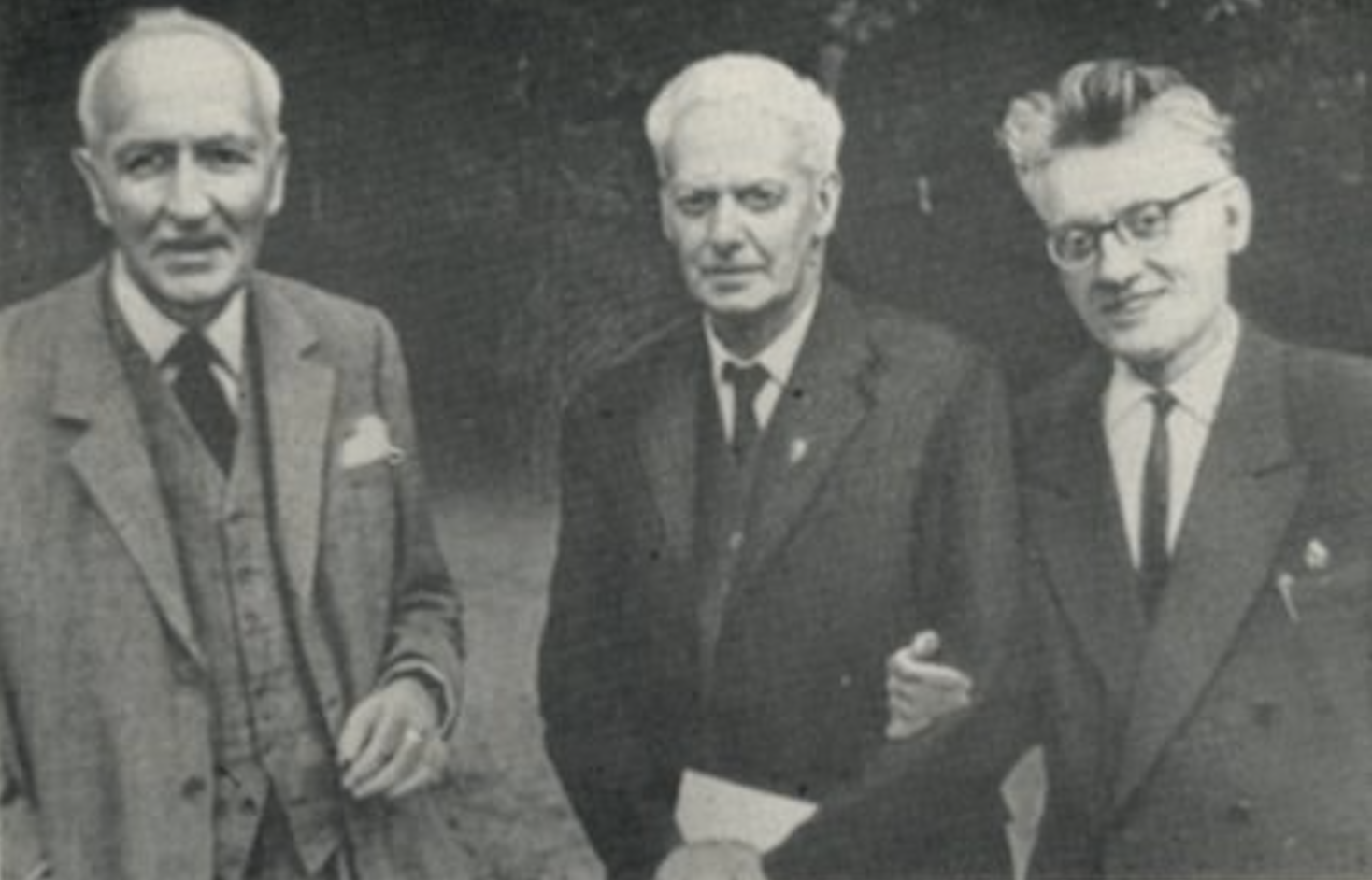An excerpt from Ossetian linguist Vasily Abaev's ‘The Tragedy of South Ossetia’

Vasily Abaev (right) with William Edward David Allen and Harold Walter Bailey (middle), (Tbilisi 1965)
The war of toponyms
The Georgian chauvinists resort to such absurd claims that they should simply be ashamed of themselves. They now maintain that South Ossetia does not exist. If they use the term at all, they put it in quotes and preface it with the words ‘so called’. They now call the area Shida Kartli [Inner Kartli] or Samachablo [Fiefdom of the Machabeli family].
In fact the Georgian and Russian equivalents of the term ‘South Ossetia’ are found hundreds of times in 19th century sources (cf. Sovetskaya Ossetiya 8 March 1991). Whilst the Georgian for ‘South Ossetia’ figures in the 8-volume Georgian Academy Dictionary, the term ‘Samachablo’ does not...
If Modern Georgia is going to build its relations with its ethnic minorities on the principles of ‘abuse’ and ‘liquidation’, then the international community and public opinion in all countries will have to judge it accordingly.
Real and imagined history
Wherever fascism erupts, the humanitarian disciplines always suffer, history most of all. There is one open and cynical goal for scholarship -- not the search and resurrection of historical truth but unrestrained ethnic, national and racial self adulation.
In the paper Zarya Vostoka (26 May 1989) I happened upon the article ‘How old are we=‘ by Georgian historian Lovard Tukhashvili. The author asserts that the Georgian state is 6,000 years old. The evidence? If you please: ‘The analysis of national ethno-psychology, heightened ambition, unshakeable self-love, pride.’ And that is all! National conceit becomes the determiner of the age of national statehood -- the greater the conceit, the older the state. Such is the level of the new fascistic historiography of Georgia.
Let us move from concocted ‘patriotic’ fantasies to actual history. Before the 10th century of our era there is not a hint of any Georgian kingdom. If before that time a Georgian-speaking ‘kingdom’ did exist, then it had no political relevance even within the confines of Transcaucasia. Only with King David the Builder (1073-1125) does the Georgian state gain a stable political status and, thanks to the crusades, become known in the West. ‘The Georgian Chronicle’ begins by presenting a varied mix of fantasy with reality. Many ‘kings’ figure here. But there is something odd -- not one of them has a Georgian name -- they are all Iranian.
All this has been demonstrated by Georgian historians themselves, the venerable Ivane Dzhavakhishvili among them. From Dzhavakhishvili to Tukhashvili -- what a deplorable degradation!.
Full book: The Tragedy of South Ossetia (Трагедия Юго-Осетии: беспредел геноцида)
by Vasily Abaev
This text is translated from Russian.